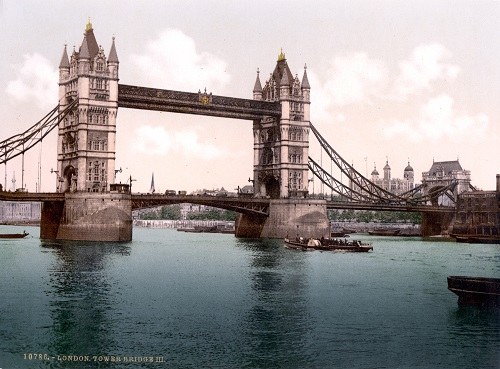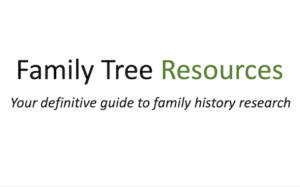
London Metropolitan Archives is owned, funded and managed by the City of London Corporation and collects, preserves and shares records relating to London, making them accessible to the public.
Their aim is to ensure that the documents and records are accessible by as many people as possible.
These records take the form of books and periodicals, documents, images, manuscripts, maps, newspapers and films.
These resources cover approximately 105 kilometres of shelving in strongrooms and date from 1067 to the present day.
Significant collections include parish poor relief and boards of guardians registers, including workhouse records.
You will find a document of use whatever subject you are interested in, whether you are researching your family history and have ancestry in London, conducting research for a school, college or university assignment, studying the history of a house or are interested in local history.
The knowledgeable and helpful staff are always on hand to offer advice and assistance if required.
Information about London Metropolitan Archives
London Metropolitan Archives
40 Northampton Road
Clerkenwell
London
EC1R 0HB
Telephone Number:
020 7332 3820
Email:
asl.lma@cityoflondon.gov.uk
Collections
To discover more about their collections, please visit their Home Page and peruse their online catalogue, which has details of most of their collections. They hold many family history sources referring to London, which include:
- Bishops’ Transcripts
- Coroners’ Records for London and Middlesex
- Electoral registers
- Hospital records including St Guy’s and St Thomas’s and the former county lunatic asylums of Hanwell, Colney Hatch and Banstead
- Land tax records
- Maps and plans
Sources also include:
- Nonconformist records
- Parish poor relief and boards of guardians registers, which include workhouse records
- Parish registers
- Photographs and prints
- Prison Records
- School admission and discharge registers
- Wills from the church courts of the Diocese of London and Archdeaconry of Surrey
- Workhouse Records
The London Metropolitan Archives also has many images, prints, paintings, photographs, films and maps dating from the fifteenth century to the present day, and 150000 of these images can be viewed on Collage – the London Picture Archive.
Many other maps can be perused at the Office, which include maps from the 1851 Agas Map to current maps.
Opening Hours
Information regarding London Metropolitan Archives’ opening hours is available.
It is important to check the opening times before visiting, especially so if you wish to visit on a Saturday because they do not open every weekend.
Location and Directions
The Archive is close to these tube stations:
| Underground line | Station |
|---|---|
| Circle | Farringdon |
| Northern | Angel |
| Metropolitan | Farringdon |
| Hammersmith | Farringdon |
The Office is approximately 1 mile from King’s Cross/St Pancras railway station, and 0.5 miles from Farringdon Station.
Many buses stop nearby:
- Buses 19, 38 and 341(Tysoe Street or Mount Pleasant)
- Bus 63(Rosebery Avenue(northbound) or Bowling Green Lane(southbound)
- Buses 55 and 243(Clerkenwell Green)
- Bus 153(Percival Street or Spencer Street/City University)
Only blue/orange badge holders may park at the Archive. The nearest pay and display car park is situated on Bowling Green Lane, and PayByPhone on-street parking is available on Northampton Road and surrounding streets.
Booking
You do not need to book a microfilm reader or computer, but it is operated on a first-come, first-served basis so you should arrive at the Office early.
Photography
You can use your own digital camera in London Record Office, but a charge is made for using this service. Some documents are fragile, so cannot be photographed. It is always best to ask a member of staff whether you can take a photograph of a document before doing so.
If you wish to take your own photocopies of resources, there is a self-service photocopier, although you should ask the permission of a staff member before taking any photocopies. The Office does make a charge to people taking advantage of this service.
Publications
The London Metropolitan Archives and Thames and Hudson have worked together to publish a book including the London County Council (LCC) Bomb Damage Maps, which illustrate the damage caused by enemy bombs in the Second World War.
The maps are colour coded to show the level of destruction caused. Excerpts from archive sources are also included, to place these incidents in context.
These maps and sources can be perused in the Archive.
Accessibility
If your mobility is limited, you can enter the Archive through the main public entrance, situated on Northampton Road. A lift is situated inside the entrance on the left-hand side.
Although most wheelchairs can fit in this lift, should this not be the case, you can use one of their larger lifts. A disabled toilet is also available.
All floor signs are in large print, raised letters and Braille.
Research Service
The Archive offers a research service for anyone unable to visit in person. Before commissioning research, it is prudent to check they have the records you want them to consult because the Office keeps 25% of the research fee if research cannot be carried out because this check was not completed by you.
The Office also likes you to make a note of the reference number of the document you wish them to look at in the original correspondence you send to them.
Refreshments
Hot and cold drinks and light snacks are available from the vending machines in the visitor lounge on the mezzanine floor. You are also welcome to eat your own food in this area.
Exhibitions
London Metropolitan Archives holds numerous exhibitions over the course of the year, many of these exhibitions relating to the history of London. They are well worth checking out because they can tell you about how your ancestor lived in the past and can add meat to the bones of your ancestor’s stories.
Events
Many events are held at the Archive throughout the year, which include talks about document handling, deciphering old handwriting, and family history starter sessions.
Twitter and Facebook Accounts
You can check out the LMA’s twitter account at @LdnMetArchives. This contains information regarding their collections and guides to searching their collections.
The LMA also have a Facebook page, which is @londonmetropolitanarchives. They compile posts relating to every facet of London history, and also reply to visitor’s queries via this page.
How to obtain a Reader’s Ticket
A City of London History Card is required to peruse original material at London Metropolitan Archives. This is achieved by either by registering in person in the Archive or registering on-line.
In order to obtain a card you must bring appropriate ID when you first visit, which must include a valid signature. Acceptable proof of identity includes a passport, driving licence, bank card, credit card, National ID card or local council staff ID.
Acceptable documents showing proof of address include a utility bill, bank/building society statement issued in the last three months, credit card statement issued within the last three months, council tax bill, HM Revenue and Customs statement or TV licence.
You should take this documentation to the Information Point at London Metropolitan Archives.
Further information regarding London Offices can be found on my pages relating to City of Westminster Archives Centre and Guildhall Library.
